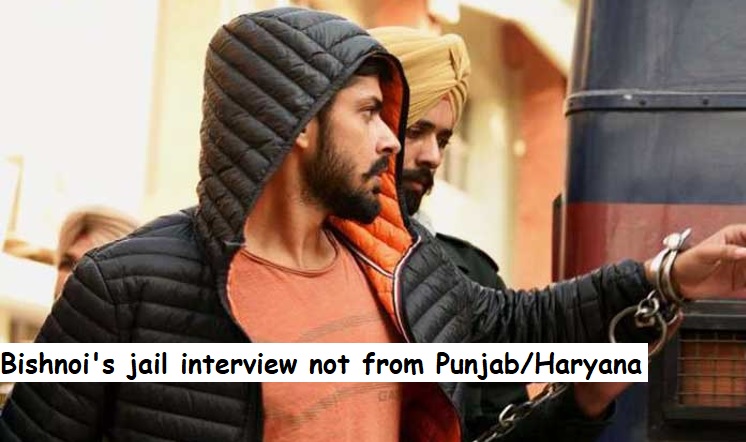


The Assistant Director General of Police (ADGP) responsible for prisons in Punjab presented a confidential report to the Punjab and Haryana High Court regarding an investigation into an interview with Lawrence Bishnoi. This report was submitted in a sealed cover during the court proceedings. The case was overseen by a division bench consisting of Justice Anupinder Singh Grewal and Justice Kirti Singh.
According to the findings detailed in the report, the Committee investigating the matter concluded that it was highly improbable that Lawrence Bishnoi's interview had taken place in any of the jails within the State of Punjab or even within the State of Punjab itself when he was in police custody. The Committee emphasized that Bishnoi was not present in Haryana at the time of the interview; instead, he was taken to various locations outside the two states for involvement in other cases.
The court was apprised of various security measures being implemented in prison facilities to prevent unauthorized activities, particularly the use of mobile phones. These measures included the installation of jammers, closed-circuit television (CCTV) cameras, body scanners, and the placement of nets on boundary walls to prevent the unauthorized entry of mobile phones. Additionally, efforts were being made to increase the jail staff, which was currently operating at 60% of its designated strength. The court also took note of attempts to augment the availability of landlines to allow inmates to make authorized calls to their family members.
In a significant move, the court directed the Director of Punjab Engineering College in Chandigarh to assign an expert in the field of electronics and communications. This expert's role would be to assist the court in understanding the technical aspects of using jammers and other equipment to prevent the unauthorized use of mobile phones and other electronic devices within the jail premises. This step indicated the court's commitment to addressing the issue comprehensively and leveraging technical expertise to bolster prison security.
The ADGP, Jails, requested additional time to inform the court about the specific timeline for implementing these security measures and preventing the unauthorized use of mobile phones and other electronic devices in prison facilities. This demonstrated a proactive approach to keeping the court informed and ensuring that the necessary steps were being taken in a systematic manner.
The court had taken suo moto cognizance of the issue of mobile phone usage within prisons and expressed grave concern over a suspect in police or judicial custody being allowed to conduct a media interview. The court emphasized the need to identify and take action against the officers who permitted or facilitated the interview. This underscored the importance of accountability and prompt action against any lapses in security and protocol.
During the preceding hearing, the bench had expressed dissatisfaction with the progress of the Committee investigating Bishnoi's media interview conducted via a mobile phone. Despite seven months passing since the initiation of the investigation, the court noted that not much headway had been made. Consequently, the court directed the ADGP to file an affidavit explaining the reasons for the delay in the Committee's report submission. This indicated the court's commitment to expeditious resolution and a thorough examination of the circumstances surrounding the interview.
In summary, the court proceedings highlighted the complexities and challenges associated with ensuring security within prison facilities, especially concerning the use of mobile phones by inmates. The court's involvement, coupled with the proactive measures being taken by prison authorities, reflected a comprehensive approach to address these challenges and maintain the integrity of the correctional system.
TAGS: Lawrence Bishnoi Sealed report Division bench Justice Anupinder Singh Grewal Justice Kirti Singh Committee investigation